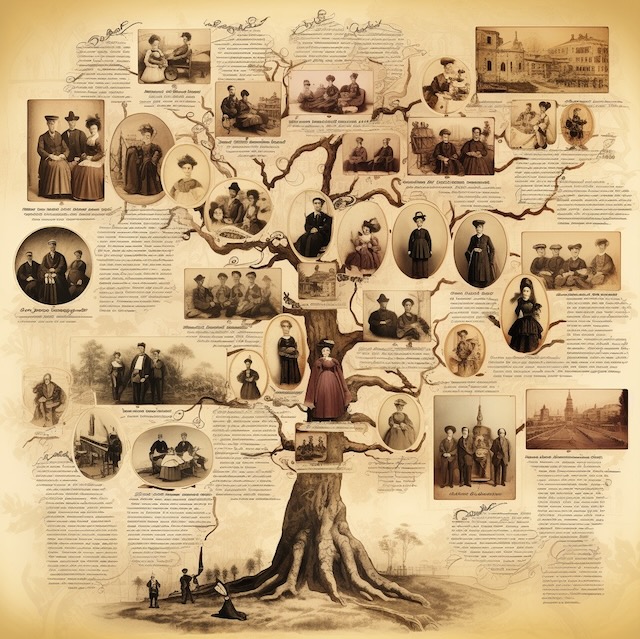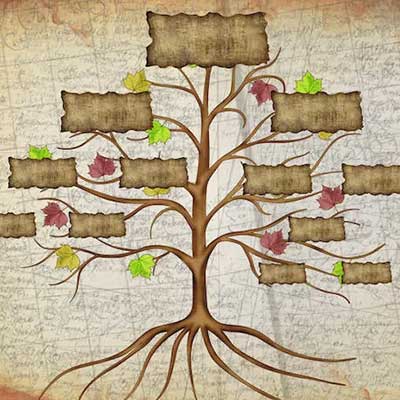- Home
- Search Family History For Free
Search Family History For Free
Have you ever wondered how to search family history for free? Now, you can use all of the available resources online. I'd like you to please discover your family history and the fascinating stories your ancestors have to tell. This article will help you to search your family tree easily and quickly to learn more about your great-grandparents or to explore their roots. Discover hidden treasures and begin a journey of self-discovery by reconnecting with your roots.
You'll be delighted to know that you can search your family tree for free. Thanks to the Internet and other online resources, you can discover your roots for free. This article will walk you through the steps of free family history research and provide tools and tips to help you.
Use Online Genealogy Websites
Online genealogy websites are a great place to begin your search for family history. These platforms offer extensive historical records that make it easy to dig deeper into the past of your family. These websites, such as FamilySearch, MyHeritage, and Ancestry, offer an abundance of resources and valuable insight into your family's history.
How to Search Family History For Free
Start with Basic Information
It's important to begin with the information that you already know about your family before diving into the world of genealogy records. Start by collecting information about your immediate relatives, including names, dates and places of their birth. Use any family trees, historic documents, or photos to help you jog memory and establish a solid foundation for your search.
Search Census Records
The census records can be extremely valuable in tracing family history. The census records are conducted by governments all over the world at regular intervals. They provide valuable information about individuals and families, such as names, ages and relationships, occupations and addresses. Many online genealogy websites have extensive collections of census records that allow you to find your ancestors.
Birth, Marriage, and Death Records
Birth, marriage and death records can be a valuable resource when researching family history. These vital records include crucial information such as dates, locations, and names of parents and spouses. These records have been digitized by many online genealogy sites and government archives, allowing researchers free access. You can discover previously unknown relatives by analyzing these documents.
Use the Slave Ships Manifest

The Slave Ship Manifests of the National Archives provide a comprehensive view of the transatlantic and intra-American slavery trades. SlaveVoyages.org provides detailed databases of over 36,000 Atlantic voyages and 11,000 in the Americas. It also includes personal information about around 95,000 enslaved Africans. The National Archives collection, on the other hand, focuses on the New Orleans manifests from 1807 - 1860 detailing the coastal slave trade in the U.S., including the personal details of the slaves as well as vessel information. Both resources provide valuable insights into the human and scale of the slave trade.
Discover Immigration and Naturalization Records
Exploring immigration and naturalization records can be a vital part of your family history research if you have immigrant ancestors. These records provide important information about the journey of your ancestors to a new land, such as arrival dates, ports and ships. Ellis Island, among other websites, offers free access to immigration records and naturalization documents.
Use Military Records
Military records are a goldmine of information for anyone with military ancestors. Sites such as Fold3 and National Archives offer access to extensive collections of military records, including draft registrations and pension files. You can learn more about your ancestors and their military service by looking at these records. They may also reveal stories and experiences previously unknown to you.
Find and Use Cemetery Records
Cemeteries records are an excellent resource for researching your family's history since they provide valuable information on the final resting place of your ancestors. You can find cemetery records through local libraries, historical societies or websites such as Find A Grave. These records may reveal vital information, including birth and death dates. They can also provide clues to further research.
Public Library and Archive Resources
The public libraries and archives offer a wealth of free genealogy information. Many libraries have sections or collections devoted to local history and genealogy. These resources can include local records, books, newspapers and maps. Check out libraries and archives in the area where your ancestors once lived to see if you can find any information.
Join Online Family History Communities
Joining online communities of family historians can make a huge difference in your research. You can interact with researchers who are passionate about family history through platforms like message boards, genealogy forums and social networking groups. These communities provide support, guidance and access to documents and oral histories not available anywhere else. You can make significant progress in your family history by collaborating with other enthusiasts.
Leverage Social Media for Family History Research
Social media is becoming more popular and an invaluable tool for researching family history. Many genealogy societies, historical groups, and genealogy enthusiasts are active online. Joining groups and following relevant accounts on social media platforms such as Facebook and Twitter will give you access to information and resources that can help with your research.
It can be a rewarding experience to for free. You can learn a lot about your ancestors by using online genealogy sites. Start with the basics and then dig deeper into census, military, and vital records. Check out cemetery records, public libraries, and archives, and join online family history groups to collaborate and gain more insights. You can explore the fascinating worlds of genealogy and learn about your family's history without spending any money.














